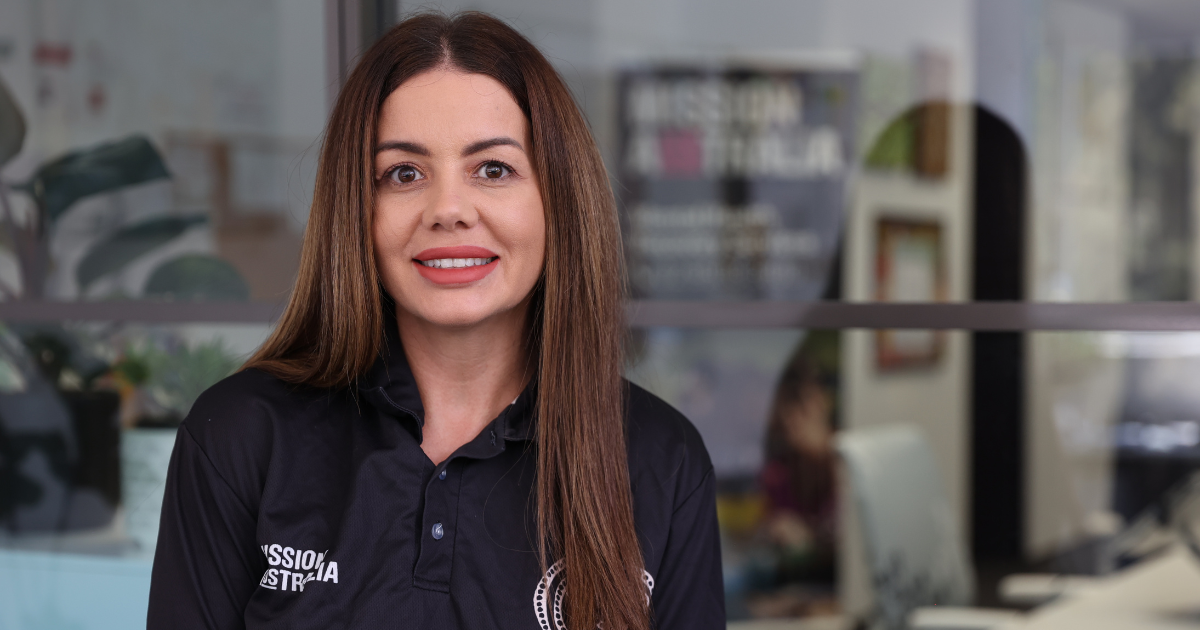My life now has freedom
- Details
Liana, Mission Australia, Playgroup Facilitator
I first saw Aisha in the school yard. She was sitting on a bench with her young son and daughter. I noticed that they were sitting alone and not joining in any activities or talking with anyone. She looked sad, lost and scared. I walked over to say hello and let her know about the playgroup I was running nearby. Without really looking at me, Aisha simply said, ‘I don’t speak English’. Over the coming weeks I kept an eye out for Aisha and her children, and each time I saw them I would make eye contact and wave hello. At about the fifth week Aisha smiled back at me and I thought, ‘Here’s my chance’. I walked over and said hello and then crouched down and asked her son Hammad if he wanted to come and play in my playgroup. He didn’t answer me and looked over at his mum for an answer. They did come to playgroup that day, Aisha in front with Hammad hiding behind her. And that’s where he stayed for the rest of the session – only occasionally peeking out from behind his mother to see what was going on. The next week Aisha and Hammad were sitting in the corner. Hammad wasn’t hiding this time. I walked over and asked him if he wanted to help me set up a train track and to my surprise he did. Soon enough he was in there playing with the other children. Because there was a language barrier I wasn’t sure what I could and couldn’t say to Aisha. I didn’t want to put her off so I thought it best that I play with Hammad and try to build up a relationship that way. I noticed that seemed easier for Aisha. As the weeks passed, Aisha seemed more relaxed and gradually became more involved in the activities – but I noticed if others approached her, she would say ‘no speak English’ and move away. Slowly she began to open up to me about her life before she and the children arrived in Sydney.
I learned that she was a single mum who had bravely left her husband because of his controlling and punishing ways. His behaviour had clearly left a mark on the family. As she talked more, I began to understand that her reluctance to meet new people came from years of forced isolation. She was fearful of doing so because her husband had forbidden it. Since coming to Sydney she’d been all alone. She had no friends, was in a new city, and with her mother overseas, she had no family around her for support. She was worried that the children didn’t have a father figure, and she struggled thinking about how she could manage it all on her own. I remember one really hot summer day I said I couldn’t wait to go home for an ice block, Aisha told me she couldn’t do that because she didn’t have a fridge. After she left that afternoon, I wondered what else Aisha and the children were living without, so I called her. She told me she and the children were sleeping on the floor with one blanket between them and that she washed all their clothes by hand because she didn’t have a washing machine.
“As she spoke, I was reminded of my own experience. It wasn’t the same, but I know what it is like to be new to Australia and how hard it is to start out with nothing.”
I was determined to do something and asked my manager what we could do to help. Over the coming weeks we bought beds and bedding, a fridge, and a washing machine – we were even able to get a computer for the family. Aisha was worried about Fazia, her daughter, and the way she was behaving. Since the move, Fazia had begun to play up a bit – she didn’t understand why she couldn’t see her dad and why Aisha left him. I helped Aisha connect with teachers at Fazia’s school, and they were able to organise for a therapist to work with the family. Since then, things have really improved. Fazia is now quite the star, a confident girl who is top of her class; she has friends and this year won four school awards. Hammad is a terrific kid too; he is already writing his name and is really excited about going to preschool. As time went on, I watched Aisha’s confidence grow. She joined a couple of our groups while I kept an eye on Hammad. She studied some English courses and her language skills grew. I always had tables of food in the middle of the room so that parents could gather and get to know one another – it stopped people from sitting alone in the corner. I was so happy when Aisha started to make some friends with some of the other mums at the table. Her world is bigger now than she was ever allowed to have before. Money remains a stress for Aisha. Last year Kmart donated Christmas presents to Mission Australia, and we made up packs for Aisha and her children. Because of those gifts she was able to put aside a little bit of money. She used this to take the kids to the movies for the very first time. I remember how excited she was about this. It may seem a small thing – but small things matter. I am really proud of Aisha, she has started studying child care part time. She helps me now. If I am running late, she sets up the playgroup and confidently chats to other parents until I arrive. Aisha is always thinking of new ideas for what we could do. We are planning on hiring her when she’s finished her course. When I look at Aisha now, she is not even close to the woman I met three years ago. Although she still owns almost nothing she smiles all the time. Aisha doesn’t need our help anymore, she’s doing so well. I always thought Aisha was brave, but now she radiates happiness and confidence.
Aisha, mum
I was scared when I moved to Sydney. I lived in Brisbane for five years but I was always at home and didn’t see other people. Then my husband told me to get out of the house. The police arranged for me to go to a shelter. My daughter was crying all the time because she missed her father. In our culture if you aren’t living with your husband they think you are not a good lady. People talked about me, my family talked about me. I had no-one. No-one to live with or to talk to. My mum was in Pakistan, so she couldn’t help me. Getting the groceries was hard because I had no car. We had to do everything daily because I also had no fridge. There was no bus stop near my place and it was the start of summer. Once I bought a little bit of groceries for the week and was taking it home in the stroller with my son and daughter. He got out and the groceries went all over the main road. The bus came and the driver said he had no space for a stroller, so I had to wait another hour for the next bus. I was crying, crying, crying, ‘Why am I here, I am alone, my family is there, I can’t survive here alone.’ Then God gave me the gift of the best lady - Liana. At first I was reserved, I didn’t want to talk about my past. After going to the playgroup a few times I got to know her. I could ask her anything, anytime and she would be there for me. At first it was very hard to talk, but when I did I felt a big release. Liana helped me understand I didn’t do bad for my children. Liana has helped me with everything. She is a support, a friend, a confidant. Everything I need. When I talk to my mum, she will ask about Liana. Every time she says, ‘Tell her I am praying for her’. My children they love Liana too. I am very thankful for Australia, Mission Australia and Liana. In my life now is freedom. I can buy things for my children. Before, if I liked something I can’t speak to ask. Before I couldn’t tell my mum what was happening because she would be sad. Now my mum is proud of me. My children are happy. I am happy. I want to be like Liana so I can help other people. I want to be an inspiration for them.
Reflection
As I was reading Aisha’s story, a song started playing in my head and wouldn’t go away: Paul Kelly’s ‘From little things, big things grow’ (which is not about superannuation, but about Vincent Lingiari’s fight for land rights for his people in the 1960s and 1970s). Reading this story brought to mind the image of a wonderful, beautiful tree, blooming with colourful flowers, a place where other life also flourishes, that started out from something almost unnoticed and insignificant: Aisha sitting alone on a bench. I say she was ‘almost unnoticed’, but Liana noticed her. The wonderfully full life that Aisha now lives, and gives to others, was nurtured into existence with a small, everyday gesture, a smile. Liana’s smile was the first drop of water that Aisha’s soul had received for years, and with more drops like that over time, that seed started to grow. With each new shoot of possibility and hope, more life-giving water, in the form of friends for Hammad at play group, who gave his mother his own smiles, Aisha’s soul would stretch further towards the light and grow stronger and more confident. When Liana wrote, ‘she slowly began to open up to me’, it was like a flower opening to the touch of the sun that Liana had brought to her life. And as their mother has grown, her children have grown as well. ‘Her world is bigger now than she was ever allowed to have before.’ When Aisha tells her version of the story, it is in two halves: before she met Liana, and after she met Liana. ‘The God gave me the gift of the best lady - Liana.’ And the greatest praise of all: ‘I want to be like Liana so I can help other people. I want to be an inspiration for them.’ All that from a smile.
David de Carvalho Deputy Secretary, Strategic Reform and Policy
This story first appeared in the publication ‘Shining a light on good practice in NSW in 2016’ which is prepared by NSW Government Family and Community Services.
Photos ©Alex Vaughan
Related news and stories
Read about what we’ve been working on, our stance on important social issues and how you make a difference to vulnerable Australians' lives.
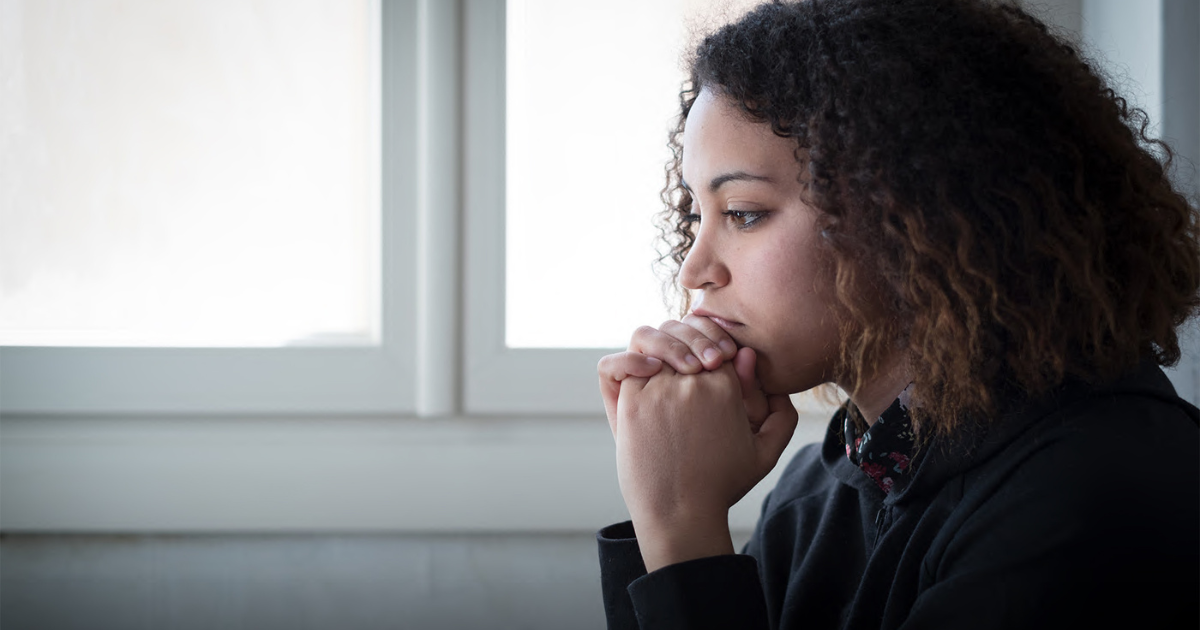
Three priorities at the 2025 Federal Election
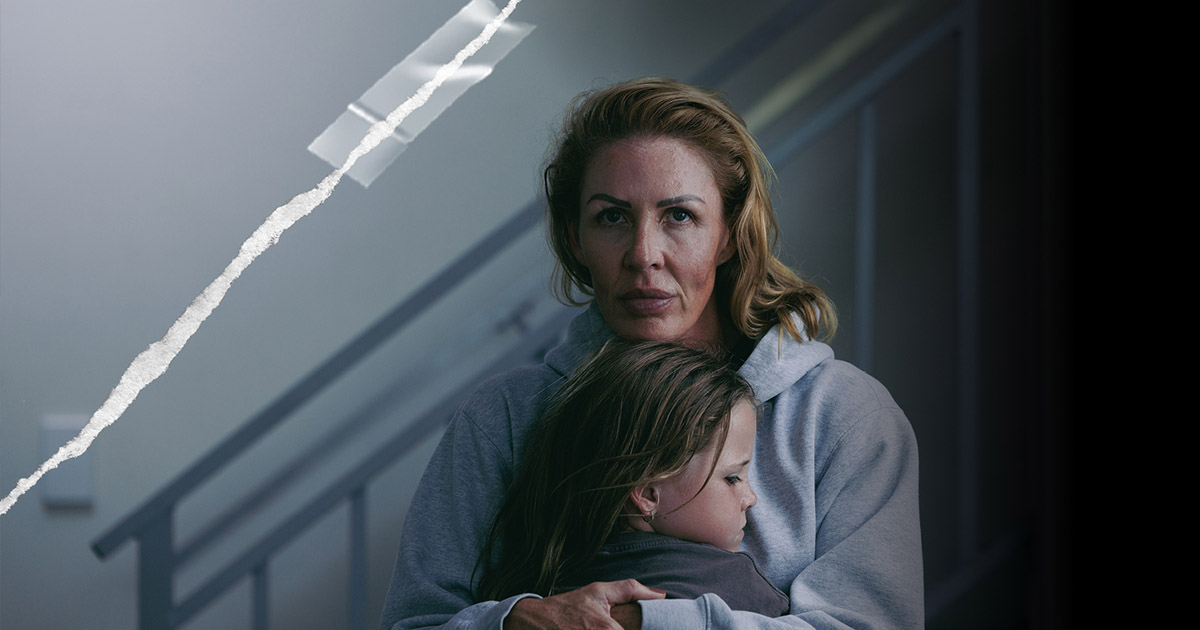
From fear to freedom: Cass’ story
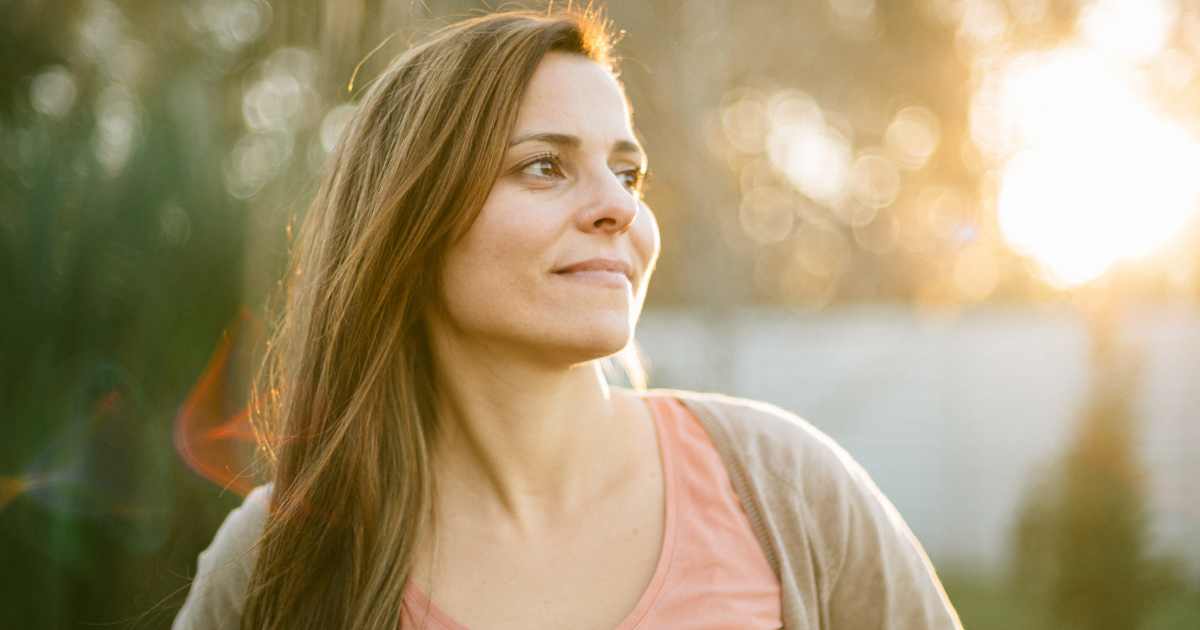
Women helping women: Karla’s story
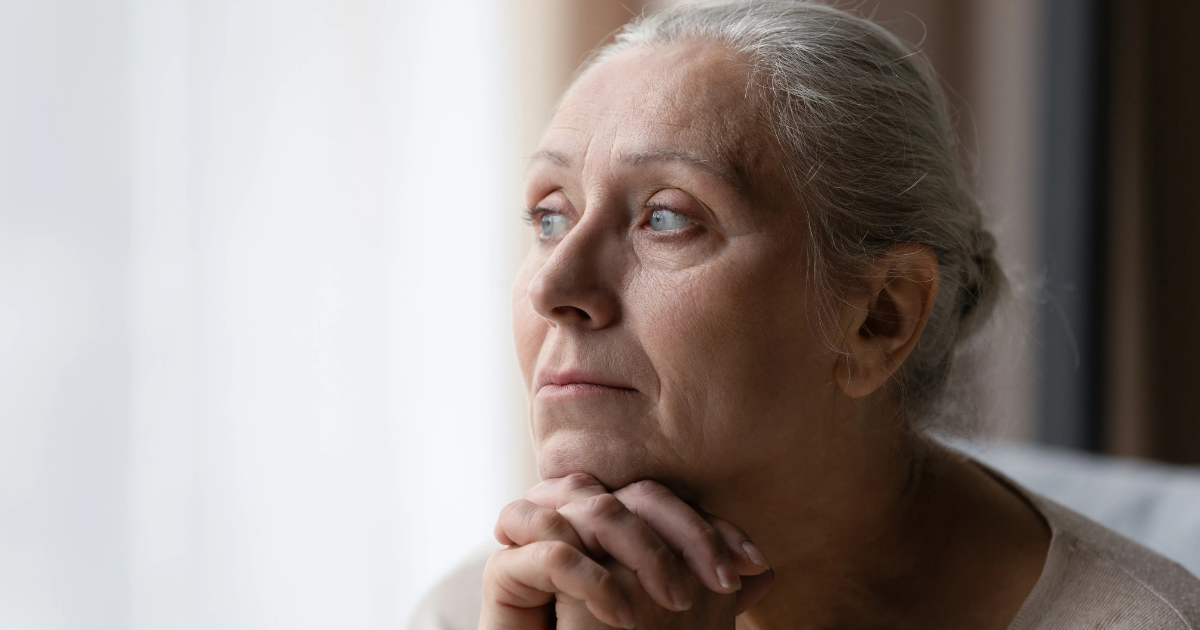
Helping older women find safe homes
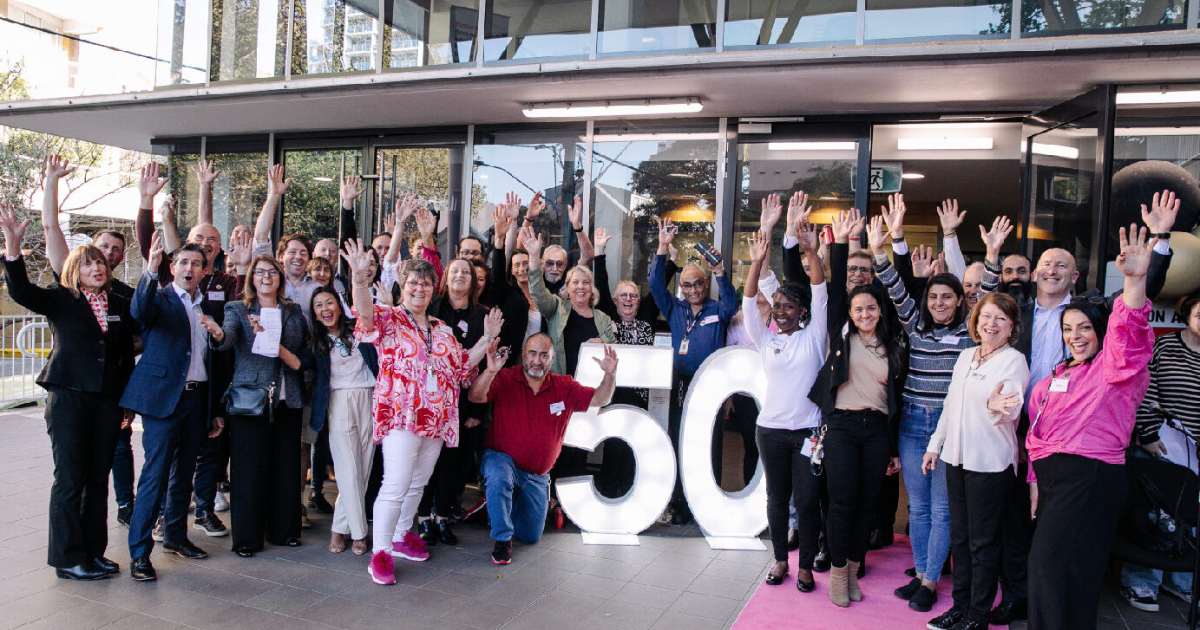
Celebrating 50 years of helping people in Surry Hills
